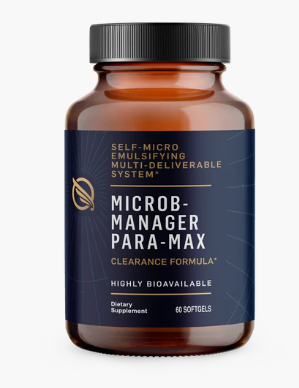Hyperthyroid Testing at Five Journeys Clinic
Hyperthyroidism, a condition characterized by an overactive thyroid gland, can manifest in a myriad of ways. From subtle shifts in energy and mood to more noticeable changes like heart palpitations and weight fluctuations, its effects are often widespread. At Five Journeys, we understand the intricate interplay of hormones and utilize comprehensive hyperthyroidism testing, including the thyrotoxicosis test, to accurately assess thyroid function. Our approach blends cutting-edge diagnostics with a deep understanding of the individual, ensuring personalized care and a path toward restoring balance.
Key Takeaways
Hyperthyroidism occurs when your thyroid gland makes too much hormone, influencing your metabolism, heart function, energy, and mood.
Common causes include Graves’ Disease, thyroid nodules, or inflammation of the thyroid gland.
Symptoms vary but often include sudden weight loss, rapid heartbeat, increased sweating, tremors, nervousness, sleep issues, and fatigue.
Getting assessed for hyperthyroidism is important for accurate diagnosis, allowing for a personalized plan to improve symptoms and daily well-being.
Tests to determine hyperthyroidism typically involve checking Thyroid Stimulating Hormone (TSH), Free Thyroxine (T4), thyroid antibodies, and sometimes a thyroid ultrasound.
Five Journeys offers hyperthyroidism testing in Boston and Newton with a holistic approach, considering your Physical, Mental, Spiritual, Social, and Environmental Journeys to support your overall health.
When Should You Do a Hyperthyroidism Test?
While hyperthyroidism can present with noticeable symptoms like a rapid heartbeat (tachycardia) or unexplained weight loss, it often begins with subtle changes that are easy to miss. Consider a hyperthyroidism test if you experience any of the following:
- Increased anxiety or nervousness
- Difficulty sleeping or insomnia
- Changes in bowel habits (more frequent bowel movements)
- Unexplained weight loss or difficulty gaining weight
- Rapid heartbeat (tachycardia)
- Increased sweating or heat intolerance
- Tremors or shakiness
- Fatigue or muscle weakness
It’s crucial to consider a hyperthyroidism test if you have a family history of thyroid disease or if you’re experiencing any combination of these symptoms. Early diagnosis, aided by blood tests and a thorough clinical evaluation, allows for prompt management and can prevent potential complications associated with an overactive thyroid.
How We Test for Hyperthyroidism
At Five Journeys, we take a comprehensive approach to hyperthyroidism testing, which may include a thyrotoxicosis test. This involves combining a thorough review of your health history and symptoms with specific lab tests to get a complete picture of your thyroid function. We believe in personalized care, so we’ll tailor our approach to your individual needs.
Blood Test
Blood tests are a common and reliable way to assess thyroid function. They help us measure the levels of different thyroid hormones and antibodies in your blood to pinpoint any imbalances. This information guides us in understanding the underlying cause of your symptoms and creating a targeted treatment plan.
Interested in Hyperthyroid Testing? Ask your provider or book a call with us!
Types of Thyroid Function Tests
To gain a deeper understanding of your thyroid health, we utilize several key tests:
Thyroid Stimulating Hormone (TSH) Test
This hyperthyroidism blood test measures the level of TSH, a pituitary hormone that acts like a thermostat for your thyroid gland. A test for hyperthyroidism often starts with TSH, as it’s a highly sensitive indicator of thyroid function. TSH tells your thyroid how much thyroid hormone to produce. Even tiny changes in thyroid hormone levels can cause big shifts in TSH. This test helps us identify subtle imbalances and understand the complex communication between your pituitary and thyroid glands.
Free T4 and Free T3 Tests
These tests measure the levels of the two main thyroid hormones, thyroxine (T4) and triiodothyronine (T3), that are not bound to proteins in your blood. It’s these “free” hormones that are actually active in your body’s cells. Accurately measuring these free hormones is really important for getting a clear picture of your thyroid function. By assessing these levels, we gain valuable insights into your thyroid’s activity and how it’s contributing to your overall hormonal balance.
Thyroid Antibody Tests
In some cases, hyperthyroidism is caused by an autoimmune condition where your body mistakenly attacks your thyroid gland. These antibodies can be present in your blood long before you even notice any symptoms. Thyroid antibody tests help identify these conditions, like Graves’ disease, by detecting the presence of specific antibodies, such as those targeting:
Thyroglobulin Antibodies (TgAb)
Thyroglobulin is like the “storage form” of thyroid hormones in your thyroid gland. TgAb mistakenly attacks this storage form, which can disrupt the normal production of thyroid hormones.
Thyroid Peroxidase Antibodies (TPOAb)
Thyroid peroxidase is an enzyme that plays a key role in making thyroid hormones. TPOAb interferes with this enzyme, making it harder for your thyroid to produce the right amount of hormones.
TSH Receptor Antibodies (TRAb)
The TSH receptor on thyroid cells is like a “docking station” for TSH, a signal from the pituitary gland that tells the thyroid how much hormone to make. TRAb can either block this signal (leading to hypothyroidism) or mimic it (leading to hyperthyroidism).
By identifying the specific factors contributing to your hyperthyroidism, including those revealed by an overactive thyroid test, we can develop a personalized treatment strategy to help you regain balance.
How to Prepare for the Test
To ensure the most accurate results from your hyperthyroidism diagnostic test, there are a few things you can do to prepare:
Fasting
Some blood tests may require fasting for a specific period. Your practitioner will provide clear instructions beforehand, so you know exactly what to expect.
Medication Review
Certain medications can influence thyroid hormone levels. It’s helpful to have a list of your current medications, including supplements, available to discuss with your practitioner.
Recent Iodine Intake
Be prepared to discuss any recent use of iodine-containing supplements or medications, as these can temporarily affect thyroid hormone production.
Questions and Concerns
Write down any questions or concerns you have about the tests or your thyroid health in general. This will help you make the most of your time with your practitioner.
At Five Journeys, we want you to feel comfortable and informed throughout your assessment. We’re here to support you every step of the way.
How Five Journeys Assesses Hyperthyroidism
At Five Journeys, we believe in a comprehensive and personalized approach to thyroid health.
- We use a variety of assessments, including blood work with a hyperthyroidism blood test as a key component, and, when necessary, referrals for ultrasounds.
- Our experienced practitioners carefully analyze your results, considering not just the numbers but also your symptoms, health history, and lifestyle factors.
- This allows us to identify the root causes of any imbalances and develop a targeted treatment plan that supports your overall well-being.
If you have any questions about hyperthyroidism testing or how we can help you achieve optimal thyroid health, please don’t hesitate to call. We’re here to support you on your journey to wellness.
Why Begin Improving Your Health with Five Journeys?
At Five Journeys, we understand that dealing with hyperthyroidism can be challenging. That’s why we take a holistic and personalized approach to your care. We don’t just focus on treating symptoms; we look for the underlying causes of your condition, considering factors like nutrition, stress, and lifestyle.
Holistic Approach
At Five Journeys, we recognize that true wellness encompasses more than just physical health. We take a holistic approach that considers all aspects of your well-being, including physical, emotional, mental, and spiritual health.
Personalized Care
We understand that each individual is unique, and their health needs are different. That's why we tailor our services to meet your specific needs and goals. Whether you're seeking preventive care, managing chronic conditions, or optimizing your overall health, we provide personalized solutions that prioritize your well-being.
Insurance Accepted
Our team of experienced practitioners will work closely with you, providing compassionate support and guidance as you navigate your journey to optimal thyroid health. We’re here to help you regain your vitality and achieve lasting wellness.
If you’re experiencing symptoms of hyperthyroidism in Boston and Newton, such as anxiety, weight changes, or fatigue, reach out to Five Journeys. We’re here to help you find answers and personalized solutions.
*Massachusetts law does not allow us to accept MassHealth & Medicaid. Other exceptions may apply.
Reference
Faber, J., Rogowski, P., Kirkegaard, C., & Friis, T. (1984). Serum free T4, T3, rT3, 3,3′-diiodothyronine and 3′,5′-diiodothyronine measured by ultrafiltration. Acta Endocrinologica, 107(3), 357-365. https://doi.org/10.1530/acta.0.1070357
Reid, J. R., & Wheeler, S. F. (2005). Hyperthyroidism: Diagnosis and treatment. American Family Physician, 72(4), 623–630. https://www.aafp.org/pubs/afp/issues/2005/0815/p623.html
Ross, D. S. (2001). SERUM THYROID-STIMULATING HORMONE MEASUREMENT FOR ASSESSMENT OF THYROID FUNCTION AND DISEASE. Endocrinology and Metabolism Clinics of North America, 30(2), 245-264. https://doi.org/10.1016/S0889-8529(05)70186-9
Why we do, What we do...






























